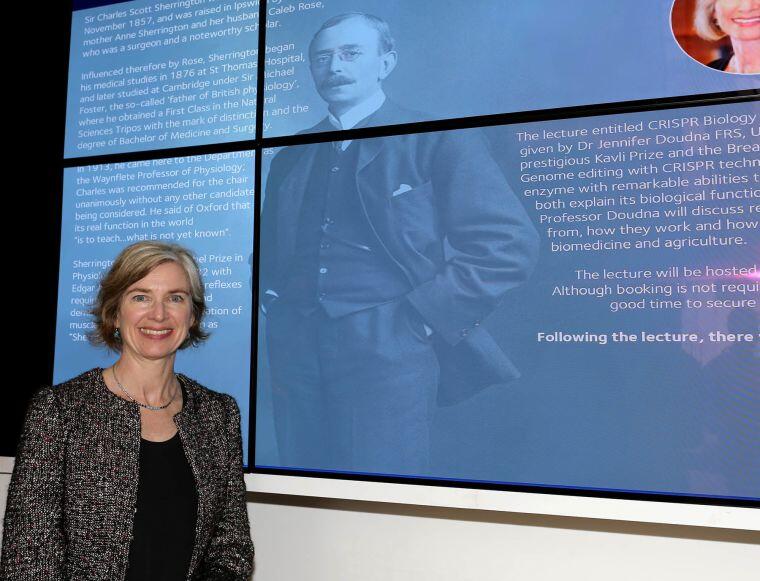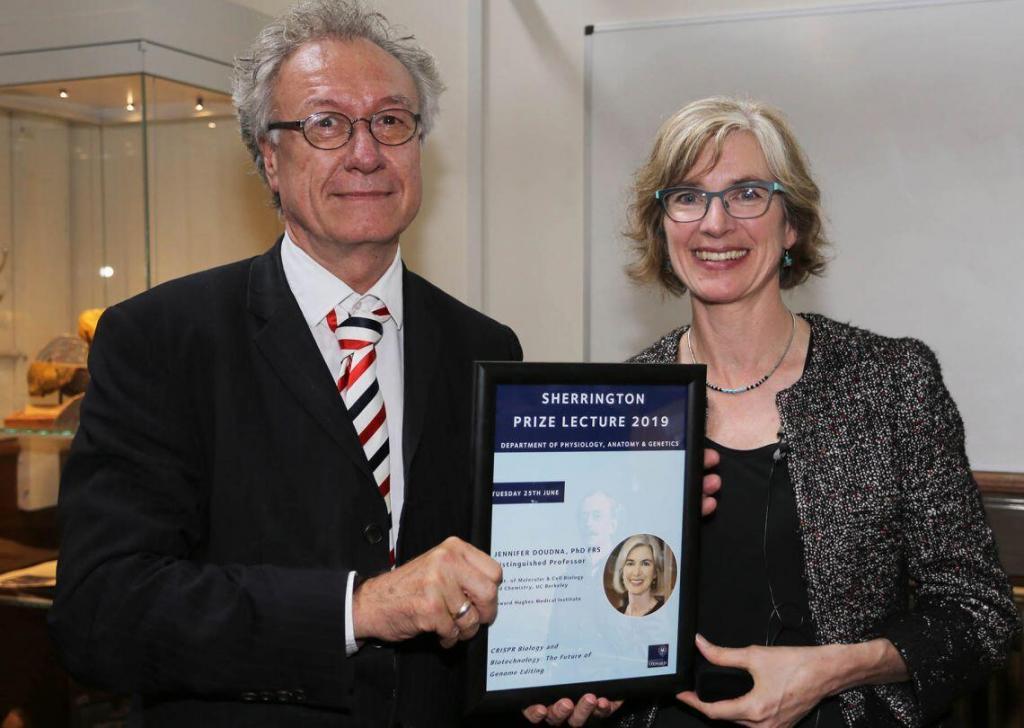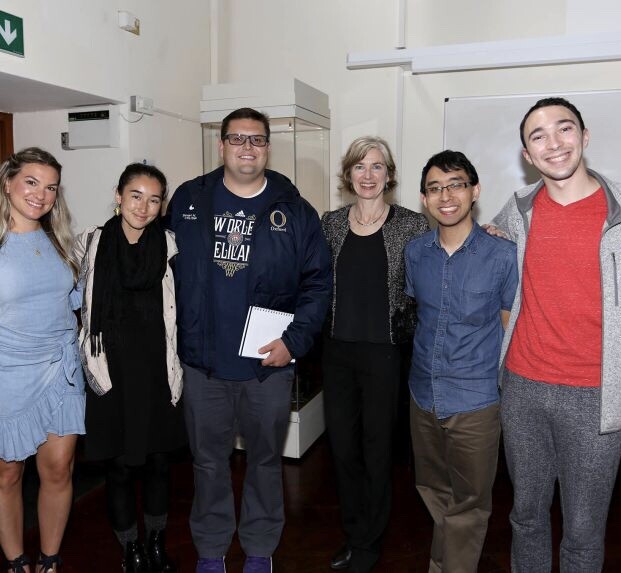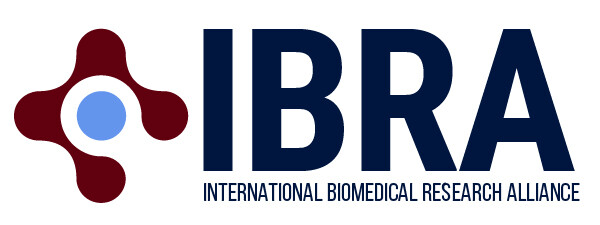
2019 Sherrington Prize Lecture honors Dr. Jennifer Doudna
On the eve of the NIH Oxford-Cambridge/Wellcome Trust Scholar’s Annual Research Workshop, students were invited to attend the University of Oxford Department of Physiology, Anatomy, and Genetics hosted Sherrington Prize Lecture 2019, which honored Dr. Jennifer Doudna, HHMI Investigator and faculty member at UC Berkeley. The Sherrington Prize Lecture was named after Sir Charles Scott Sherrington, who was a distinguished University of Oxford professor and received the Nobel Prize in Physiology or Medicine in 1932 for showing that reflexes require integrated activation and demonstrated reciprocal innervation of muscles, a principle now known as “Sherrington’s Law.” Dr. Doudna was in town to receive an honorary degree from the University of Oxford at the annual Encaenia event.

In 2012, Dr. Doudna, alongside her colleagues, described a new way of editing the DNA of any organism using an RNA-guided protein found in bacteria. This technology, called CRISPR-Cas9, is transforming biology, creating the ability to tackle both human and non-human applications of gene editing.
The focus of Dr. Doudna’s talk was CRISPR Biology and Biotoechnology and the future of genome editing. Genome editing with CRISPR technology is transforming biology, CRISPR-Cas9, an RNA-guided enzyme with remarkable abilities to recognize and cleave DNA, operates by mechanisms that both explain its biological function and provide insights into technology development. Dr. Doudna discussed research into this amazing family of proteins: where they came from, how they work, and how Cas9-based technologies are revolutionizing research, biomedicine, and agriculture.
“I’ve been impressed with how Dr. Doudna has responsibly engaged with broad audiences about biomedical ethics and science communication surrounding CRISPR” stated NIH-Oxford Scholar Lauren Wedekind. “After hearing her work and insights featured in Radiolab and Freakonomics podcasts, I was also glad to hear her discuss the various experiments and publications that contributed to CRISPR and CRISPRi methods and applications–and welcome questions from local high school students. This is a great example of how researchers can share their thought processes and findings, and address how complicated the interpretations and applications can be.”

“It was great to hear from Dr. Doudna three years after her talk at the Beyond the Bench symposia at Cold Spring Harbor Laboratory” stated Manager Ambrico. “CRISPR technology has advanced immensely over the past few years and it was fascinating to see new discoveries and applications, including highlights of research done by my former colleagues. I was even more impressed with Dr. Doudna, when she took the time to meet with and engage with students from high school to PhD level, after her lecture.” She even autographed a notebook for one OxCam fan of her work!

UC Berkley Distinguished Professor Jennifer Doudna is an Investigator with the Howard Hughes Medical Institute and a Foreign Member of the Royal Society. She has received many honors including the prestigious Kavli Prize, the Breakthrough Prize in Life Sciences, the Heineken Prize, the BBVA Foundation Frontiers of Knowledge Award and the Japan Prize. She is the co-author with Sam Sternberg of “A Crack in Creation”, a personal account of her research and the societal and ethical implications of gene editing.
Special thanks to Colin Beesley for the photographs.
